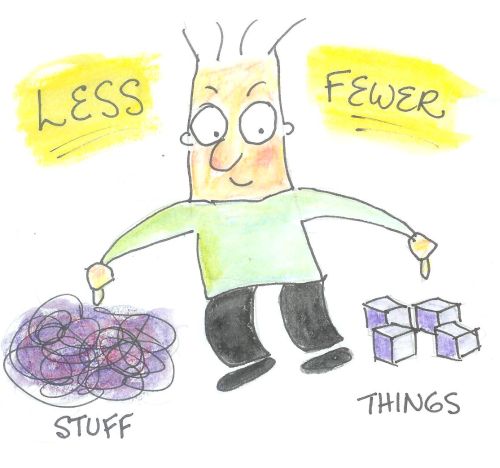7 Common Grammar Mistakes in Business Writing
It doesn’t matter who you are or what job you wish to get, the awareness of grammar rules is mandatory. If your overarching objective is to achieve success, you need to know how to write effectively and avoid common errors. Maybe you don’t need grammar rules in your everyday life, but they are crucially important for your career. You may be an excellent specialist in your respective field, but poor writing or letters, full of mistakes, may have a negative impact on your reputation.
The point of this review is to show you 7 common grammar mistakes in business writing. Having looked through them, you will definitely improve your writing skills and will manage to evade these grammatical mistakes. So, let’s begin!
# 1. “I” vs “Me”
The easiest way to analyze mistakes is to give examples. So, they are as follows:
- Thanks for giving Kris and I an opportunity to visit this place.
As you can see, this phrase doesn’t seem correct. This may be an inconspicuous mistake for an everyday chat, yet still, if this is a business communication, it will probably be noticed and may give the wrong impression about you.
The correct way is to say:
- Thanks for giving Kris and me an opportunity to visit this place.
“Me” is an objective pronoun, you need to use it after a preposition or in an objective position.
#2. “Fewer” vs “Less”
This is one more common mistake. Maybe at first gaze, it seems that there is no difference between these two words, but you are again mistaken (if you think so). The major difference is the following one:
- “Fewer” is used with the aim to indicate countable objects. For instance: “Fewer than 10 patients came to the hospital”.
- “Less” is used to indicate intangible concepts. For instance: “I spent less than two days to write this report”.
Just remember: use “fewer” only in case you can count the objects!
 #3. “It’s” and “Its”
#3. “It’s” and “Its”
To understand this rule, you need to remember that “its” is a possessive pronoun. For example: “Its fur is everywhere”.
“It’s” is just a shortened version of “it is”. Don’t confuse both versions. For example: “It’s snowing” (means “It is snowing”). An apostrophe doesn’t always symbolize possession. In some instances, it is widely used to symbolize several omitted letters. This case is a vivid example.
#4. Dangling modifiers
Maybe, at first, you even don’t understand what is meant. Nevertheless, dangling modifiers are those adjectival clauses that are used either at the beginning or at the end of sentences. They are often used incorrectly.
The modifying clause needs to be placed near the word or word combination this clause explains. Let’s take a look at examples to understand correctly this rule and avoid this mistake:
Incorrectly: “Achieving great results in studying, the teachers were amazed by students”.
Correctly: “Achieving great results in studying, the students amazed the teachers”.
Can you spot the difference? The first sentence sounds like a set of word combinations. The next one means that teachers are happy at the results their students managed to achieve.

#5. Irregular Verbs
This is the biggest pitfall of English language. If you are a native speaker you’re most likely to know all of them. Nevertheless, those who are just learning the language and want to achieve great results in their career should know all irregular verbs. The easiest way not to confuse them is just to learn mechanically all three forms of these verbs. Otherwise, you will continue making mistakes, thinking that you can follow ordinary rules of forming Past Simple Tense.
For instance: the verb “hang”
Incorrectly: “Yesterday, I hanged the picture on the wall”.
Correctly: “Yesterday, I hung the picture on the wall”.
The full list of all irregular verbs counting over 470 words can be easily found on the Internet, for example, check here. Luckily, there are only 200 words in common use. Good luck learning them and may the force be with you!
#6. “Then” and “Than”
These two words aren’t similar. Both mean absolutely different things. “Then” is widely used with the aim to discuss the time frame. For example, “I finished my job and then went to the café”.
“Than” is used in comparisons. For instance: “He is bigger than his brother”.
Mostly, we understand the difference between these words and a mistake is a misprint (in the majority of instances). Yet still, you should be very attentive because confusing these two words, you make a significant lexical mistake.

#7. Don’t End Your Sentences with Prepositions
Ending your sentence with a preposition is not actually an error; it may be a usual thing in everyday communication. However, if you are writing business letter or proposition, it makes you sound less formal. For instance: “My brother told me everything about the event we needed to be ready to”. You see that this sentence doesn’t sound authentic.
Instead of this, you need to say: “My brother told me everything about the event to which you need to be ready”.
There is one easy rule: if you don’t know how to use the preposition correctly, try to paraphrase the sentence in order to omit it at all.
These are 7 major grammar mistakes people make in business writing. Hereupon, if you wish to be successful, try to avoid them. If you are not sure how to explain your viewpoint correctly, it is always better to try searching on the Internet; there are many online tutorials explaining one or another rule. Besides, if your primary target is to develop and attain success in business, invest in yourself! Do anything to learn anything new and bend every effort to achieve success!









